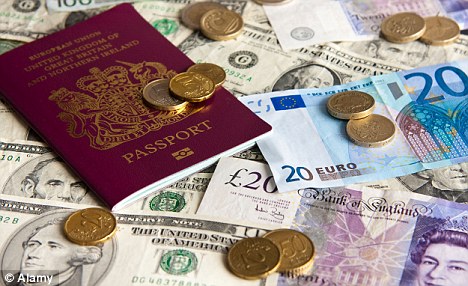-Paul Romer
If you want to save money on your next overseas excurrsion thenLet the markets tell you where you are going on vacation, not the other way around. You can do this by tracking exchange rates around the world and traveling to those countries when the exchange rate spikes.
Here are a couple of examples: India, Nepal, Vietnam. India, Nepal, and Vietnam are all trading at 40% below where they were 10 years ago. Meaning, not counting inflation, it is now 40% cheaper to travel around there than it was 10 years ago. This is a great way to take a cheap vacation!
I originally got this idea from a British friend who came down to the reception area with a big grin on this face. When I inquired as to what was so great, he informed me that there was "political unrest" in Thailand. So what? "Well guess where I'm going for Christmas?? The Thai Baht is falling through the floor!".
Thailand is now going through another situation like that 8 years ago. If you look at the exchange rate, you can see the value of their currency has fallen 15% since April. While it's still more expensive than it was 10 years ago, keep your eye on it in the event that the currency falls even more.
Egypt is another example. It's considerably cheaper to travel their now then it was prior to the revolution. There are two more advantages. When tourism is down then they experience deflation on top of the cheaper currency. Not to mention many of the sites aren't crowded.
You may be thinking that this is some how mean to be "taking advantage" of a country that is going through a crisis or a downturn. Nothing could be further from the truth! When these things happen you absolutely should go because it helps their economy AND helps their currency. By going there and spending money it boosts their economy and strengthens their exchange rate. That why currency fluctuations happen the way they do.
Also prior to going, be sure to read up and see if they have a thriving black market for currency exchange. It could save you a bundle!

 RSS Feed
RSS Feed
